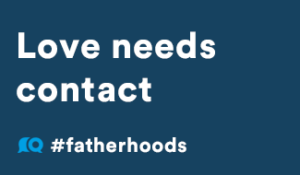In a case involving alleged sexual abuse, it is important to seek legal advice at the earliest opportunity. The allegation could lead to the involvement of a Local Authority’s children’s services department, the police and both criminal and family courts.
Even if charges are not brought, it is quite common for children’s services to advise the parent with care not to allow any unsupervised contact if they believe sexual abuse has occurred.
In the event a complaint is made to the police, it is likely that the child will be interviewed along with both parents. The child may be interviewed in the presence of an appropriate adult and a medical examination may be necessary. It is quite common for the parent with care to be advised to withhold any direct contact between the alleged perpetrator and the child.
Even if charges are not brought, it is quite common for children’s services to advise the parent with care not to allow any unsupervised contact if they believe sexual abuse has occurred.
The family court can regulates what periods of time a child will spend with each of their parents by a Child Arrangements Order. At the first hearing, the family court judge will consider what orders are needed to allow the case to be decided, including a request to the police to disclose the evidence they hold as well as medical records and any video recording of the child being interviewed.
If a decision has not been made as to whether to charge or not, the police may decline to disclose this information in case it impacts upon the pending criminal proceedings. The court may ask the parents to file statements and will consider whether the child should be separately represented via a person known as the child’s guardian who would be asked to attend all further hearings.
The court at the first hearing stage will consider if it is possible to put in place a child arrangements order in the absence of the evidence relating to the allegation and what further hearings to list. An interim hearing to look at the question of both indirect and direct contact can be listed.
In the absence of a determination of the truthfulness or otherwise of the allegation, given the severity and the need to protect the child, it is relatively common for a judge to consider some form of supervised contact in the intervening period. It is also likely to consider listing a hearing to determine the truthfulness or not of the allegations. This is known as a fact finding hearing. The difficulty with a fact finding hearing is often that they may take four or five days to be heard, which frequently means a delay currently around 6 months while space is found within the court timetable to list the hearing. Therefore it is particularly important that the alleged perpetrator begins the family court process as soon as possible and not wait until the outcome of any third party enquiries.
At the conclusion of the fact finding hearing, a judge will provide a judgement as to what they believe occurred based upon the evidence before them, which is decided on the basis of “the balance of probabilities”. This is the standard of proof in a family case which is different to that within a criminal case where charges have to be proven “beyond a reasonable doubt”. That could lead to a scenario whereby criminal charges are not brought because the criminal standard of proof is not reached, but the allegations are maintained within the family court which has a lower standard of proof.
At the conclusion of the fact finding hearing, the judge will then consider what further steps are necessary dependent upon the findings that have been made. If the court finds that sexual abuse has occurred, that does not automatically mean that contact between the child and the perpetrator has to cease. It will be dependent upon the individual facts of the case. As a result, there is no standard approach that will be adopted after a positive finding of abuse save that at every stage the court will seek to protect the child and make orders that are in that child’s best interests.
If the court determines at the fact finding hearing that the allegations are false and malicious, the consequences for the parent with care are potentially significant. That could involve the court transferring care of the child from one parent to the other. A court could also find that sexual abuse has not occurred but the parent with care has not acted in a malicious manner and they have sought to protect the child appropriately until the evidence has been properly tested. In these circumstances it is not common for a court to consider transferring with whom a child lives from one parent to the other.
In every case, a judge will consider if it is necessary for there to be any further reports perhaps from the child’s guardian, before making long term decisions.
Posted on June 20, 2019














